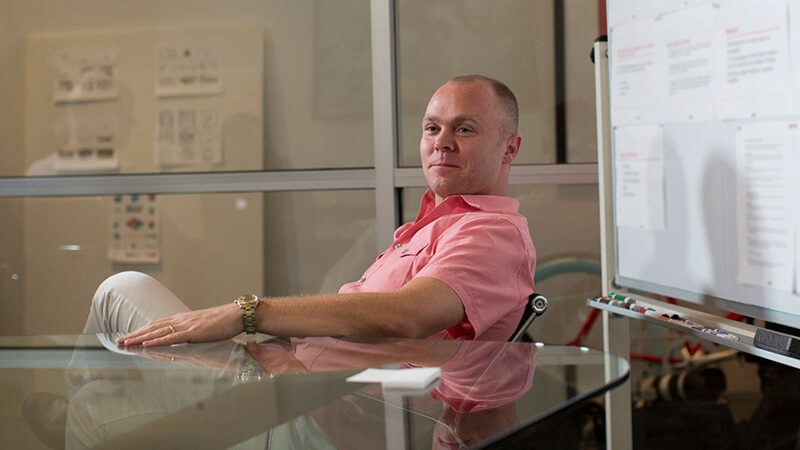Pro Advice
Leading a Double Life: Tips on Separating Your Personal & Professional Lives Online
Update: In November 2018, Full Sail’s Internet Marketing programs were updated and are now Digital Marketing Bachelor’s, Digital Marketing Master’s, and Digital Marketing Certificate.
For many people who are freelancers, entrepreneurs, or tech professionals, their online persona is an important part of their professional brand.
Increasingly, that means maintaining a Twitter feed, Facebook page, website, or blog that represents them as a professional.
Yet social media is also the realm where many people connect with friends and family and share very personal things about themselves.
But let’s face it: clients may not want to know about your political leanings (and may not agree with them), your friend’s wild party, or your current health problems. How do budding professionals separate the two sides of their lives?
We asked two Full Sail faculty members, Kerry Gorgone and Kenneth Cossin, for their advice on leading a double life. Here’s what they had to say:
Privacy: There is no sanctuary.
“When it comes to social media, I create two separate accounts,” says Kenneth Cossin, a Course Director for Full Sail’s Internet Marketing Bachelor of Science degree program. “Should a current student find my personal account, I redirect them to my professional account.”
That said, Cossin doesn’t consider that even his “private” channels are truly private: “One should always remember that there is no reasonable expectation of privacy outside of your home. The same thought process needs to be used online and especially with social media,” says Cossin. “If I want to let my hair down with my friends, I invite them to my home.”
Internet Marketing Course Director Kerry Gorgone, who blogs for several media outlets including the Huffington Post, says she doesn’t maintain separate accounts because she believes in transparency – up to a point.
“I’m me across all of the social networks,” says Gorgone. “That said, I make an effort not to ‘overshare,’ and I do use the privacy settings on Facebook to control who sees which posts. Industry-related resources, news, or articles are set to ‘public’ because they’re of general interest. Posts about me might be public if I’m attending an industry event, or they might be private if I’m posting photos from a family outing.”
Gorgone does use Path, a smaller and more intimate social network with close family and friends. She also likes Google+ for creating private groups. However, she says it’s important to remember that nothing is really private anymore.
“I agree with Ken that anything you post online could theoretically be seen everywhere, and I bear that in mind before I post. Whether you tweet to a protected account or share a profanity-laden rant to Path, someone could take a screen shot and share your post publicly.”
Keep it real… but upbeat
Maintaining a professional persona requires a delicate balance, says Gorgone. “You need to be authentically you, but you don’t necessarily need to share everything,” says Gorgone. “No one wants to read how disappointed you were with your breakfast burrito or what a mess your bathroom is. We all have those experiences, but I don’t think it’s necessary to post it to Facebook or Twitter.”
Gorgone says she avoids profanity and controversial topics, but does allow her personality to shine through.
“I’m a content creator, so every blog post I write or podcast I create reveals my character. It’s not as though I could ‘hide’ behind a polished persona, and really no one should. It’s a shame when someone who’s vivacious and engaging in person has a stiff, unapproachable online presence in the name of appearing professional.”
Do frequent vanity checks
Cossin says he monitors his personal brand by doing a quick vanity search at least once a week. “I quickly respond to potential privacy risks immediately,” says Cossin.
Carelessness when it comes to how you're represented online can not only be embarrassing, but can also seriously undermine your professional reputation.
“The content of a compromising photo can be bad enough,” points out Gorgone, “but the fact that a ‘social media expert’ doesn’t tweak a few settings to prevent it from showing up publicly would indicate to some that they’re not such an expert after all.”
Whether you’re ready to apply or just want to learn more about Full Sail University, our Admissions Representatives are here to help. Call us or request more information.
Keep Exploring
- Music Business
- Mobile Development
- Sports Marketing & Media
- Behind the Scenes Tour
- New Media Journalism
- Digital Arts & Design
- Student Work
- Media & Communications
- Job Search
- Creative Writing
- Accolades & Awards
- Oscars
- Course Stacks
- Business Intelligence
- Instructional Design & Technology
- Computer Science
- Student Organizations
- Recording Arts
- Expert Advice
- Industry Partners
- Life at Full Sail

